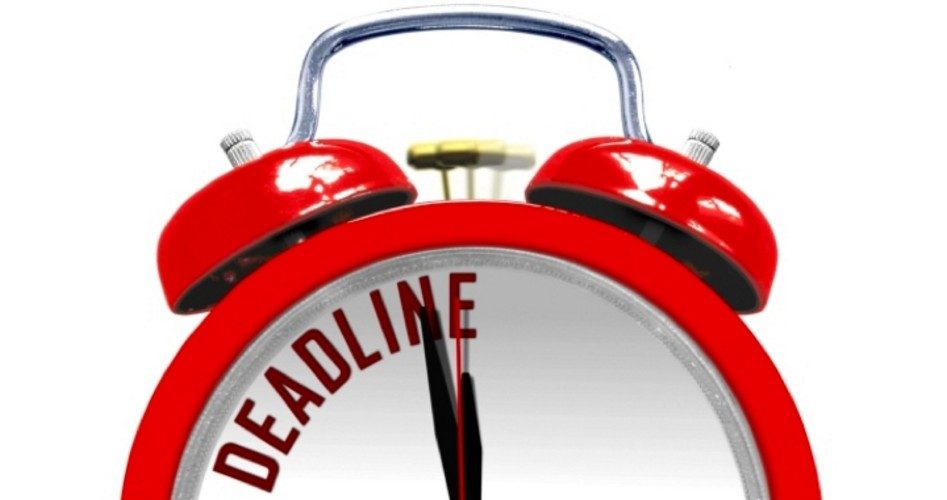
The evening of December 23 marks the deadline for Americans to sign up for ObamaCare health insurance and pay in full in order to have their coverage begin on January 1. This deadline will serve as a major test of how much public interest in ObamaCare still remains after the disastrous launch of its website on October 1.
More Americans are able to sign up in ObamaCare as HealthCare.gov begins to show improvements. The website is now able to handle approximately 800,000 users per day and hold callers in a waiting line, administration officials said.
And the Obama administration is working feverishly to encourage consumers to sign up for healthcare by the deadline and bolster the numbers.
An administration official reported,
[The Centers for Medicare & Medicaid Services] has been reaching out to consumers who applied for coverage but have not yet selected a plan by email, phone and hard mail, to let them know about the next steps to complete enrollment.
Broader outreach and enrollment efforts will ramp up next year to help more Americans sign up for coverage throughout the open enrollment period, which goes through March 31, 2014.
In a statement, the president declared,
The law is working. If you don’t have health insurance, go to [the site] right now and sign up. If you do it before December 23rd, you can be covered on the first day of the New Year. … I’m asking you to spread the word about getting covered.
Obama boasted on December 20 that one million Americans have enrolled in ObamaCare through the third week in December — a significant increase from the 365,000 who enrolled in November, but still far short of the administration’s goal of 3.3 million prior to the October 1 launch.
Despite the positive spin that officials in the Obama administration are putting on recent enrollment, however, critics point to the White House’s December 20 announcement that people who had health plans cancelled in 2013 can get an exemption from the individual mandate in 2014 as a true indicator of the law’s vitality.
Health and Human Services (HHS) Secretary Kathleen Sebelius wrote to a group of senators on December 20 saying she will issue a “hardship exemption” from tax penalties for people whose plans were cancelled but who were not able to purchase new insurance by the deadline.
Robert Moffit, director of the Heritage Foundation’s Center for Health Policy Studies, notes that the number of Americans qualifying for that “hardship exemption” is truly telling. He told Fox News, “This whole thing has turned into a rat’s nest of rules and regulations. Who would have thought Health and Human Services Secretary Kathleen Sebelius would grant so many hardships?… This administration is under the mindset of how America is supposes to work, which has nothing to do with how it really works.”
And the HHS continues to worry that some consumers may believe they are fully enrolled in a health plan when they may in fact not be, because of the website’s technical problems.
An HHS official wrote in a recent blog post,
If you’ve already received an insurance card, as long as you pay your premium by December 31st, or any later date that your insurer may set, you’re covered. If you haven’t received a card, you should contact the plan you selected to confirm that your enrollment has, in fact, taken place.
The Obama administration and health insurance companies remain in defensive mode as they continue to field complaints from citizens who were angry and surprised to learn that they were losing their current healthcare coverage.
As a result of the healthcare website’s inoperability, the administration asked insurance companies to bend their deadlines for getting coverage and paying for it. Politico writes, “Both were moved back more than a week — from Dec. 15 to Dec. 23 for applying and from Dec. 31 to Jan. 10 for paying.” Naturally, the changing calendar has confused Americans.
Amid the issuing of millions of insurance cancellation notices in November, President Obama gave insurers the option of extending plans to consumers for an extra year, regardless of whether they meet the ObamaCare standards.
Likewise, administration officials asked insurers last week to accept partial payments or backdate policies for those who enroll after Monday in an effort to increase the number of Americans who will be insured by January 1.
Skeptics of the law, including Senator Joe Manchin (D-W.V.), are asking the Obama administration to delay the individual mandate for one year to allow Americans time to adjust to all the changes.
“This whole 2014 will be a transitional year — to find out where our glitches are and our little nuances that we have to work for, and find out if the market can produce the products that we need to keep this and us healthy,” Manchin said on CNN’s State of the Union on December 22.
“At the end of the day, if it’s so much more expensive than what we anticipated and that the coverage is not as good as what we’ve had, you’ve got a complete meltdown at that time. So this transitional year gives you a chance to adjust the products to the market. And to see if the market will absorb and buy the product,” he added.
Manchin, along with Republican Senator Mark Kirk of Illinois, introduced legislation to delay the individual mandate for one year.
As the healthcare law continues to unfold, the disapproval ratings for ObamaCare continue to spike. Real Clear Politics shows that 53 percent of Americans disapprove of the healthcare law, while 37.8 approve of it. Results from a CNN poll taken from December 16-19 are even worse, with 62 percent opposed to the law, and 41 percent in favor. A Rasmussen Reports poll from early December shows 56 percent opposed, with 40 percent in favor.
Update: In a last-minute move, the administration on December 23 extended the deadline to sign up for health insurance under ObamaCare an extra day.




